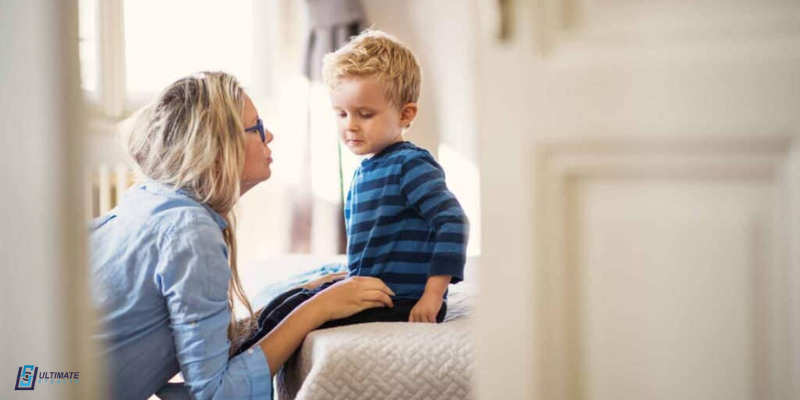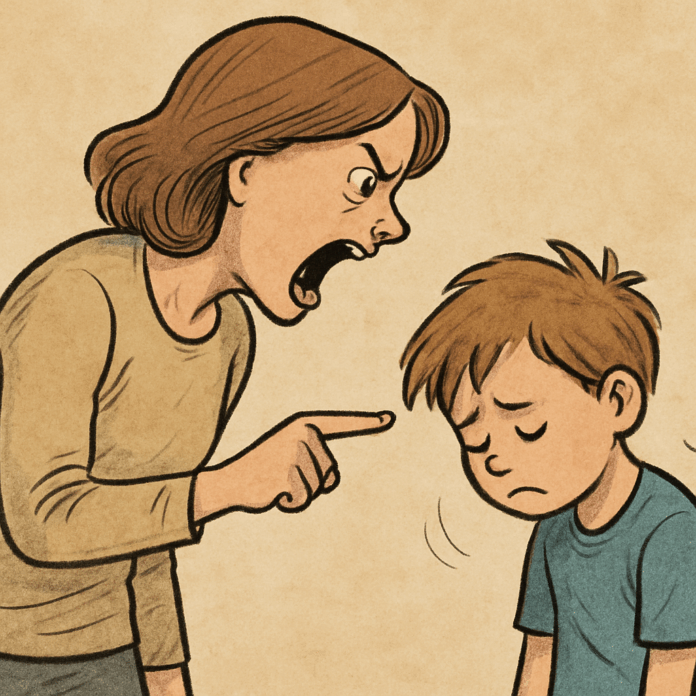Parenting isn’t easy — every parent wants to raise confident, emotionally healthy children, yet frustration is a natural part of the journey. When kids misbehave, it can be tempting to react in the heat of the moment, but how we respond matters just as much as what we say. Research shows that harsh discipline, especially yelling, can affect a child’s emotional well-being far more deeply than many parents realise. Understanding these long-term effects can help you make calmer, more positive choices that support your child’s healthy development.
Table of Contents
1. Yelling Damages Self-Esteem
When children are frequently yelled at, they may internalise negative messages, believing they are the problem rather than their behaviour. This can foster feelings of being “bad” or “not good enough,” damaging their self-confidence over time. Regular yelling can make children overly cautious, afraid to make mistakes, and hesitant to express themselves. Their self-worth becomes tied to fear instead of encouragement.
These low self-esteem issues often carry into adulthood, affecting relationships and decision-making, and leading to feelings of unworthiness. In essence, yelling harms not just in the moment but can shape a child’s self-perception for years. Using calm, clear communication helps children learn from their mistakes without harming their identity, fostering confidence and emotional health.
2. It Creates Long-Term Anxiety
A home filled with yelling can make kids feel unsafe. Their bodies may stay in a fight-or-flight state, even during quiet moments.
Possible signs of anxiety caused by yelling:
- Nervousness
- Avoiding parents
- Trouble sleeping
- Fear of making mistakes
3. Increases Behavioural Problems
Frequent yelling at children can lead them to internalise negative messages, making them feel like they are the problem rather than understanding that it’s their behaviour that’s at fault. This can damage their self-confidence and foster feelings of unworthiness.
As a result, children may become overly cautious and hesitant to express themselves, tying their self-worth to fear. These issues with low self-esteem can persist into adulthood, affecting relationships and decision-making. In contrast, calm communication helps children learn from their mistakes while preserving their sense of identity, ultimately promoting confidence and emotional well-being.
4. Hurts Parent–Child Connection
Parent-child bonds are built on trust, safety, and emotional closeness. Yelling weakens these foundations. Children who are yelled at often may begin to emotionally distance themselves from their parents. Withdrawal may appear as silence, avoidance, or a lack of desire to share.
Children may stop confiding in their parents altogether because they fear being judged, scolded, or misunderstood. Important conversations about school, friendships, or emotional struggles become less frequent. As the child grows older, the communication gap widens, and rebuilding trust becomes harder.
It doesn’t mean the child doesn’t love their parents any less, it simply shows how deeply yelling affects their sense of safety. When yelling is replaced with empathetic listening, gentle tones, and patience, children feel secure and can open up, ask for help, and seek guidance without fear.
5. Raises Risk of Depression
Yelling in a child’s environment can cause serious emotional damage. It can make children feel unloved, unimportant, and hopeless, leading to sadness, low motivation, and withdrawal. Constant yelling reduces their resilience, making it harder for them to deal with stress and setbacks, which can result in long-term depression.
Children need warmth, patience, and understanding to thrive. Calm communication helps them feel loved and supported, boosts their confidence, and teaches them that mistakes are a normal part of learning. Creating a nurturing atmosphere is essential for their emotional health.
How to Stop Yelling: Simple Strategies
Here are practical steps for building a calmer parenting style:
✔ Pause before reacting
Take 5 seconds before responding to misbehaviour.
✔ Identify your triggers
Stress, fatigue, and overwhelm increase the likelihood of yelling.
✔ Use positive discipline
Explain consequences calmly and consistently.
✔ Focus on solutions, not blame
Teach problem-solving instead of punishing emotionally.
✔ Take breaks when needed
A short pause can prevent an emotional meltdown — for both parent and child.
Things to Do After Yelling at Your Kid

Even the calmest parents sometimes lose their temper. What matters is how you handle the aftermath:
Acknowledge Your Mistake
Calmly admit to your child that you yelled and that it wasn’t the best way to handle the situation.
Apologize Sincerely
A simple “I’m sorry for yelling” shows children that everyone makes mistakes, and taking responsibility is important.
Explain Your Emotions
Briefly share why you were frustrated without blaming your child. This helps them understand feelings and model emotional communication.
Reconnect Emotionally
Spend a few minutes doing a positive activity together — reading, drawing, or simply hugging — to restore trust and closeness.
Reflect and Plan
Think about what triggered the yelling and how you can respond differently next time. This helps you break the cycle of yelling.
Conclusion
Yelling at children can seriously affect their emotional, behavioural, cognitive, and physical development. Understanding these effects can help parents choose better ways to discipline. Using positive reinforcement, calm communication, and clear boundaries can create a healthier environment for your child’s growth. Remember, as a parent, your job is to guide and nurture, not to create fear and anxiety. With patience and understanding, you can help your child grow into a well-adjusted adult.


